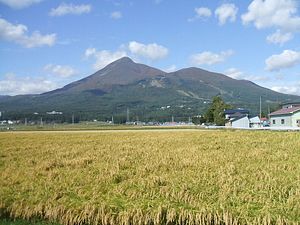On Sunday, Japan’s Foreign Minister Taro Kono lobbied Hong Kong’s Chief Executive Carrie Lam to abolish its import ban on agricultural products from the disaster-affected Fukushima and neighboring prefectures. During a weekend visit to Hong Kong, the first in 21 years, Kono said he hopes to strengthen economic times by setting a path toward the cancellation of Hong Kong’s Fukushima import restrictions.
Since the 2011 Fukushima nuclear disaster, 55 countries have implemented an assortment of trade bans on seafood, fresh produce, and food stuffs from Fukushima and neighboring regions. Currently, Hong Kong restricts imports of fruit and vegetables from five Japanese prefectures: Fukushima, Ibaraki, Tochigi, Gunma, and Chiba, just east of Tokyo.
In another setback, early this month, the Japanese government criticized South Korea’s refusal to lift its blanket ban on seafood from six prefectures of Japan despite a WTO ruling that the ban constituted “arbitrary and unjustifiable” discriminatory measures.
Meanwhile, a long anticipated event in Bangkok serving Fukushima flatfish at a range of Japanese restaurants for the month of March was canceled after mounting public pressure from a consumer group over radiation contamination concerns. It comes as a blow to farmers and fishermen, who have struggled to rebuild their reputation and sales to pre-disaster levels amid misconceptions and rumors surrounding the safety of produce both domestically and internationally.
Fukushima was once an important farming stronghold serving east Japan, with a strategic highway connected to Tokyo. However, seven years after the earthquake and ensuing nuclear disaster, farmers have been forced to sell below market prices and in some cases hide the Fukushima name from packaging. Professor Kayo Tajima, an urban economist at Rikkyo University in Tokyo, says before the accident Fukushima was famous for high-end farm produce, but the region lost its social value and brand power in the top end market after the accident. She says, in particular, that while Fukushima peaches were a symbolic specialty gift, the specter of radioactive contamination made peaches a touch-and-go gift idea.
According to the government, food safety checks have not detected radiation in rice since 2015 and they boast a 99.9 percent pass rate. A safety panel announced in January that compulsory radiation inspections on Fukushima rice — with a $57 million a year price tag — will be phased out in favor of random spot checks. Fruits and vegetables already undergo spot checks.
One year after the nuclear accident, Tajima says, Japanese authorities lowered the accepted level of radiation by half (from 100 to 50 becquerels per kilogram) adopting the strictest standards of any country in the world. She says Fukushima farmers went to extreme lengths to ensure harmful produce was not shipped out in order to protect their reputation in the immediate aftermath.
Farmers in the Fukushima region are no strangers to disappointment. But over the years there have been success stories as well. Local premium sake has won international acclaim in London and is exported to the United States, Canada, Hong Kong, and France. Gourmet fruit and fish delicacies have also been well received at food expos in Milan and Shanghai. A key strategy for recovery is opening international markets and convincing foreign customers that the quality and safety of food have not been compromised.
On the weekend, the governor of Fukushima traveled to Paris to promote rice and dried fruit for shoppers to sample. Meanwhile, in Hong Kong, Kono squeezed in a Fukushima food demonstration at a shopping mall in Hong Kong,
The issue is how to undo the risk mentality that still deeply divides and influences customer buying choices. Tajima says the one way to counteract suspicion is by effective risk communication and marketing to appeal to consumers not just by touting the lack of radiation but the transparency about the chemicals and pesticides used in cultivation.
The long-term impact of misinformation and rumors has been detrimental to north Japan’s agriculture industry. But Tajima highlights that the slow recovery also stems from the supply side never regaining the same level of output as before the accident. A vast number of evacuees chose not to return home, leaving behind abandoned farms.
While radiation is still a worry in Tokyo, Tajima says people are not as nervous compared to seven years ago and are more willing to include Fukushima produce on their dinner tables.













